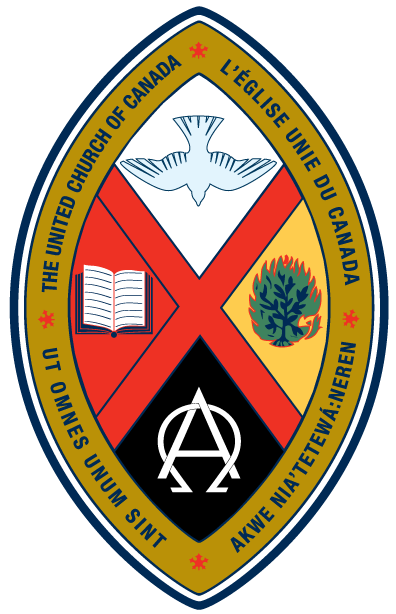ONTARIO HUMAN RIGHTS CODE
HARASSMENT POLICY
1.0 DESCRIPTION
1.01
Lansing United Church is a Pastoral Charge of The United Church of Canada conducting Christian ministry in the province of Ontario.
1.02
In accordance with the Ontario Human Rights Code Lansing United Church provides everyone equal rights and opportunities without discrimination in their job and when providing services. Lansing United Church does not and will not tolerate discrimination on the basis of the following 15 grounds:
- Race
- Sex (including pregnancy and gender identity)
- Disability
- Age
- Ancestry
- Ethnic Origin
- Place of Origin
- Citizenship
- Creed
- Sexual Orientation (The church has an exemption regarding sexual orientation)
- Marital Status
- Family Status
- Record of offences
- Being in receipt of public assistance
- By association
2.0 POLICY
2.01
Lansing United Church takes a position of zero tolerance with regard to harassment.
No United Church employee or any other individual affiliated with The United Church of Canada under any circumstances is allowed to exhibit harassing behaviour toward others, including but not limited to employees, congregants, volunteers, visitors, consultants, service providers or any other third parties.
Should an employee perpetrate an act of workplace discrimination or harassment, Lansing United Church will exercise measures in response to that employee's behaviour, up to and including termination of employment, subject to any relevant requirements of The Manual of The United Church of Canada.
Similarly, should any volunteer perpetrate an act of workplace discrimination or harassment, Lansing United Church will exercise measures in response to that person's behaviour, up to and including removal from office or membership, subject to any relevant requirements of The Manual of The United Church of Canada.
2.02
The sub-Executive of Toronto Conference will address incidents of Workplace Discrimination and Harassment by responding to incident reports, conducting investigations, and developing decision making processes and prevention plans with the objective of promoting a safe and secure work environment for all employees.
3.0 DEFINITIONS
3.01
Lansing United Church, in compliance with the Ontario Human Rights Code defines harassment as "engaging in a course of vexatious comment or conduct that is known or ought reasonably to be known to be unwelcome."
This definition of harassment does not apply to reasonable challenges to work performance or negative job-related feedback. Extremely inappropriate or harmful delivery of criticism or expectations may meet the criteria of harassment. Workplace behaviour that includes discriminatory comments or conduct is included in the definition of workplace harassment.
3.02
Examples of workplace harassment can include, but are not limited to:
- Discriminatory comments or actions
- Inappropriate or unwanted touching that could be perceived as sexual discrimination
- Inappropriate jokes (i.e., jokes made at the expense of others including race, gender, weight, sexual orientation, etc.)
- Flirtatious comments that feel discriminatory
- Pornographic pictures or websites
- Shunning based on the 15 grounds
- Scapegoating based on the 15 grounds
- Abuse of authority that undermines someone's performance or threatens his or her career based on the 15 grounds
- Setting someone up to be unsuccessful, i.e., providing wrong instructions on purpose, based on the 15 grounds
4.0 PURPOSE
4.01
The purpose of this policy is to implement policies, procedures and programs to reduce, manage and prevent discrimination and harassment in order to foster an environment of safety and mutual respect at all levels of the church between all employees, co-workers, contractors, visitors, congregants and volunteers.
5.0 PREVENTION
5.01
Toronto Conference will disseminate information about discrimination and harassment in the workplace to all churches, organizations and congregations covering the following topics:
- Clearly displaying a copy of Ontario Human Rights Code Harassment Policy in a central location accessible and visible to all employees, such as a bulletin board.
- Educating all employees and new employees/volunteers/Board Members, etc. on all aspects of the legislation relating to the 15 grounds
5.02
Lansing United Church will emphasize safety, dignity and respect as core values of The United Church of Canada.
5.03
Lansing United Church through a designated person or committee will implement safety and security responses should discrimination, harassment or the threat of harassment occur.
6.0 PROCEDURES
6.01 Toronto Conference will implement procedures, educate congregations, investigate and respond to reports of discrimination and harassment as well as determine actions resulting from a decision.
6.02 Toronto Conference will make available to employees written guidelines explaining how to report discrimination and harassment, and the procedures that will occur once an incident has been formally reported.
6.03
Toronto Conference will provide guidance and education on how to respond to an incident of discrimination or harassment.
6.04
Lansing United Church will provide workers with a list of whom to contact should an incident of discrimination or harassment occur.
6.05
Toronto Conference will respond to reported incidents of workplace discrimination or harassment as follows:
6.06
Toronto Conference will contact the Complainant and Accused separately and inform them regarding the investigation process.
6.07
Toronto Conference will provide guidelines to the complainant should they decide to file a Report of Harassment.
6.08
Toronto Conference will conduct a thorough investigation through the following steps:
- Inform the Presbytery that a workplace harassment investigation is taking place.
- Contact all the necessary authorities regarding the incident (police, Ontario Human Rights Commission)
- Consult legal counsel for guidance as needed
- Conduct interviews with complainants, accused and witnesses separately to obtain Incident Reports
- Compile all previous records of discrimination or harassment by the accused
- Compile police reports, if applicable
- Compile reports of the complainant
- Compile Statements and Response from the Accused
- Review all documentation
- Engage in a consensus decision-making process where applicable
- Make a decision and/or recommendations regarding the accused and/or the incident that can include mediation, discipline or termination, as well as other options
- Share decision with the Presbytery who will determine final actions
7.0 RESPONSE
Toronto Conference will:
7.01
Inform Accused of the judgment, support options and next steps.
7.02
Inform the Complainant of the judgment, support options and next steps.
7.03
Explain actions coming from the judgment to all relevant employees of the Church, Presbytery and Toronto Conference, as relevant.
Further processes:
7.04
Employees, volunteers, congregants or others who, with good intentions, provide information about actions they believe to be discriminatory, harassing or potentially harassing, will not be subject to disciplinary actions or negative consequences should an investigation prove their report to be unsubstantiated.
7.05
Employees who are found to have maliciously and/or intentionally wrongfully accused an individual of workplace harassment may be subject to disciplinary action up to and including termination of employment.
Similarly, volunteers who are found to have maliciously and/or intentionally wrongfully accused an individual of workplace harassment may be subject to disciplinary action up to and including removal from office or membership, subject to any relevant requirements of The Manual of The United Church of Canada.
7.06
Employees and volunteers who are found to be at risk of engaging in harassing conduct or who have engaged in violent conduct may be subject to discipline, suspension or dismissal.
8.0 REMEDIAL ACTION
The intent of this policy and procedures is to be remedial and not punitive. Remedial action can include professional counseling, coaching or training and will consider the following factors among others:
- The degree to which the incident undermines personal dignity, work relationships and working climate;
- Any record of previous offences, their nature and degree of severity;
- The effectiveness of the remedial measure in preventing repetition of the behaviour;
- The working relationship of the complainant and the harasser; and
- The effects of the discrimination or harassment on the complainant


